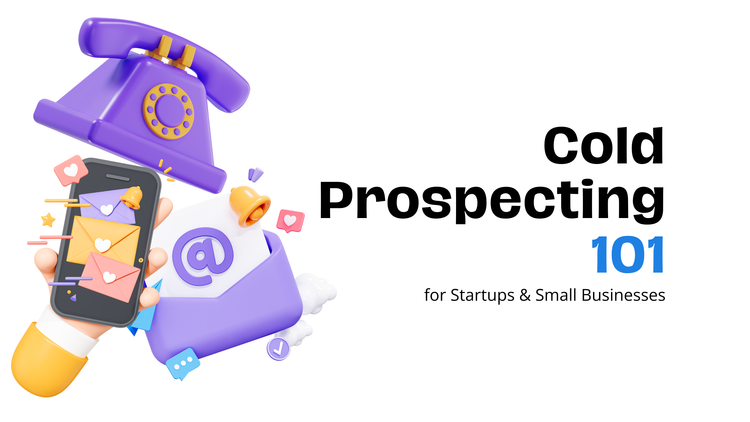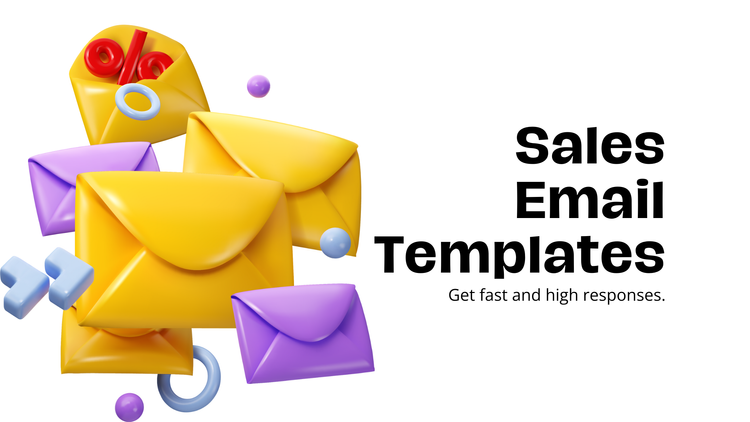Email Lookup: How to Find & Verify B2B Emails Easily

For many B2B industries, finding a potential customer's email can take a long time, and you might end up with no useful information at the end of the day. That’s why so many sales leaders, marketing professionals, and startup founders use email lookup tools prior to hitting send on their outreach campaigns.
Let’s look into the areas you need to consider before you purchase an email lookup service and send off those persuasive telecommunications.
What is the Purpose of Your Email Lookup?
The first step to finding the right email tool for your business is to determine what you want the email lookup to accomplish. Some tools are geared towards different audiences, organization types, and general purpose.
For example, are you sending out a monthly newsletter to boost your active marketing campaign? Or are you trying to gather emails to create a personalized sales outreach list? These are entirely different campaigns that have different desired outcomes. For a marketing campaign, you might want the reader to click through to a landing page you’ve created, while for a sales email, you might try to book a meeting with a prospect.
How Do Email Lookup Services Work?
Once you determine how you will measure the email’s success, you can start the process of researching B2B email lookup services online and how they function.
If you’re looking for an email lookup service, you most likely have run into the common problem of not finding your desired prospect’s email. So how can you find an email address?
Most email lookup tools rely on custom technology that combines data from sources like company websites, social media, and proprietary algorithms to gather your needed contact information.
You’ll also want to consider how the tool makes the email addresses available to you. Some email address lookup services have their own platforms and websites, while others only function as browser plugins, and some offer both.
Email Lookup and Email Validation: Why It Matters
Now that you know how these tools work, you might have tested out one or two services and built up a test email list.
But how can you trust if these emails are accurate? The last thing you want is to spend your time researching the perfect email lookup service and then discover that many of the emails it collects are not valid.
Make sure the tool or email service you use can properly validate emails before you begin.
Try an Email Lookup Web Extension
Not every professional needs a fully supported email software platform for their B2B lead generation efforts. A web extension is the perfect way to test out a tool, and see if it’s a good fit for your business needs.
For example, a LinkedIn email lookup service powers up your existing LinkedIn account, so you can gather contact information for LinkedIn users that you identify and want to reach in your sales and marketing.
As with every extension found online, you need to make sure it is supported by your preferred browser. Skrapp.io, for example, supports the vast majority of leading browsers, including Chrome and Chromium-based browsers, as well as Mozilla.
And what do you do if you’re looking for more than a handful of emails? If you have a large spreadsheet you need to fill by the end of the week with verified emails, then a bulk email finder tool is your best bet. With Skrapp’s tool, all you need to do is upload a CSV or TXT file full of business data about your prospects, such as their name and company, and click a button. Your B2B email database will thank you.
Where to Find Trusted Email Lookup Reviews
Just like with any other tool your business would use, it’s good practice to research reviews. One popular platform for such reviews is Capterra. It’s important for you to know things like how easy the tool is to use and whether the emails from the tool were high quality.
Choosing the Right Email Lookup Service: Final Thoughts
Now that you have completed all of your research, you’re finally ready to pick the best B2B email lookup service for your needs. We recommend starting with a list of your top five choices, then comparing their services and reviews until you have your perfect tool.





